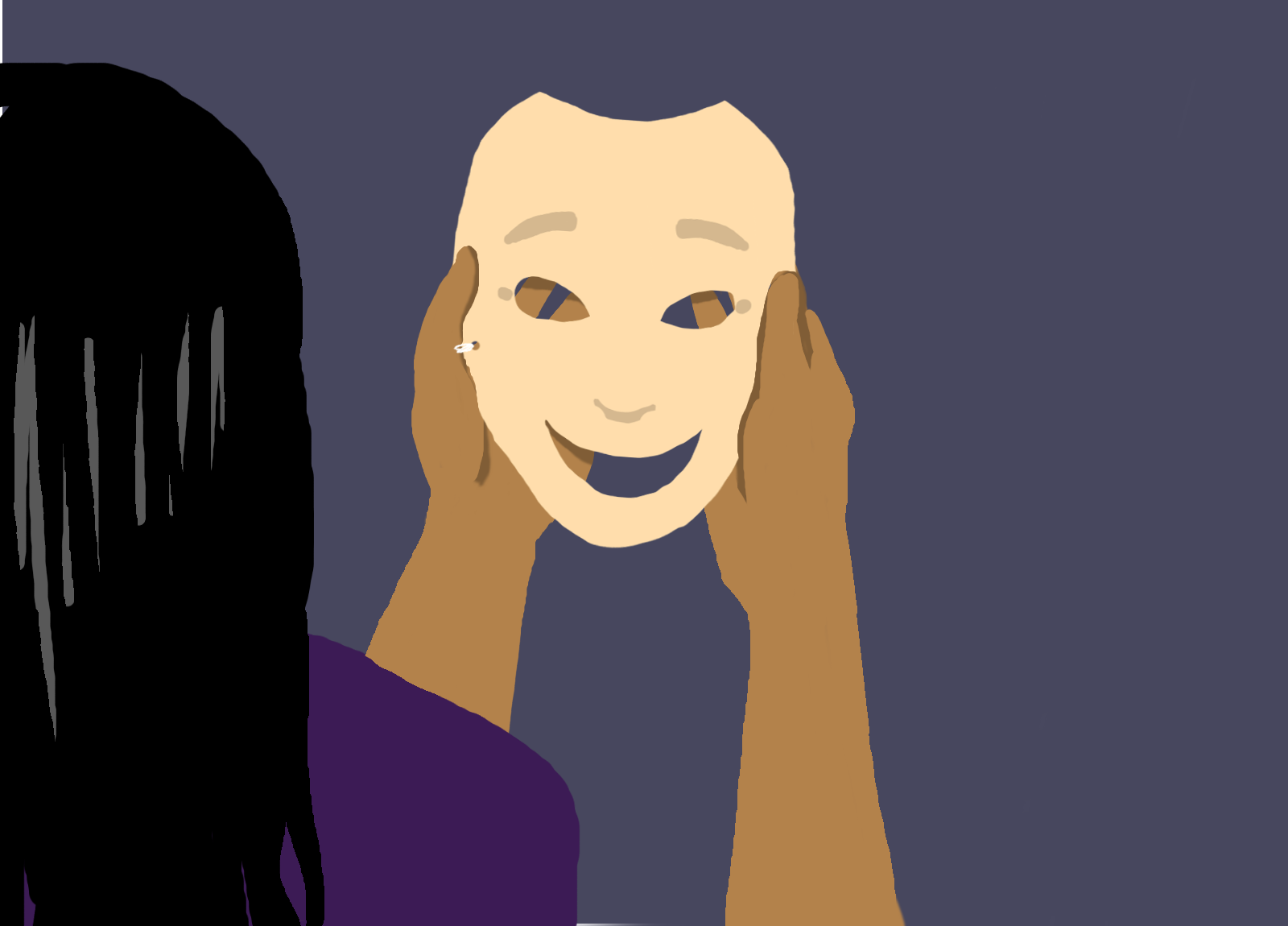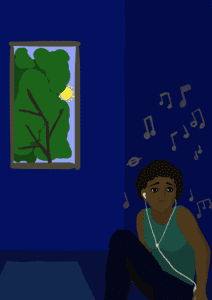Share this story:

Featured Resource: Only Smiling On The Outside (Youth Radio/NPR)
In this short but powerful audio story from Youth Radio, a high school class clown reveals her secret struggles with depression, and talks about how she uses humor to hide her sadness from her classmates. “It’s weird, because I know how I feel in the inside,” she says. “I know how people perceive me on the outside–that I’m like this funny person who like laughs a lot and all that. I don’t want any of them to know how I’m feeling on the inside. So I basically hide all that with that with, like, funniness I guess.”
Background
Sometimes teens’ emotions are like icebergs: what you see on the surface doesn’t really hint at what’s going on underneath.
Nearly one-third of high schoolers experience symptoms of depression, according to Childtrends, a non-profit research organization that analyzed statistics gathered from CDC national data sets in 2013. The same study showed that 39-percent of girls and 21-percent of boys have reported feeling sad or hopeless. This may manifest in teens acting withdrawn, feeling irritable, experiencing changes to their appetites, sleep patterns or grades, or losing interest in things they used to like.
But just because a young person has depression doesn’t mean that it’s obvious to their teachers, classmates, family members — or even themselves. Teens may be in denial about their feelings or have different cultural ideas/taboos about mental health. In some native languages, for example, there are no words for anxiety or depression, making these conditions difficult to diagnose and treat. Among some Chinese Americans, for example, depression is commonly experienced as physical pain (stomach aches, headaches, etc.) rather than emotional pain. One way for individuals to be more aware of their feelings is to keep a mood diary or similar method track your feelings over time (see additional resources below)
Even when adolescents recognize they are struggling with emotional pain, they may feel pressure to hide it from others to appear “normal” to others. But that doesn’t make their struggles any less real.
In a recent Youth Radio commentary, a high school “class clown” talks about how she uses humor to hide her depression and anxiety.
“I wouldn’t want to tell anybody that I’m upset, because I kind of like hold myself to a standard that everyone needs to see me happy,” she says.
Discussion
How can schools better support students who are having a tough time, but don’t necessarily show it? To participate in this discussion, listen to the resource below and tweet your response to the prompt. Be sure to begin your tweet with @youthradio and end it with #DoNowFeelings.
More Resources
APP: Mood Ring (Youth Radio available via Google Play)
Mood Ring is a free, youth-made android app that allows young people to track how they’re feeling using emojis. After you use it for a period of time, you’ll get an “emotion report” showing how you’ve been feeling, and encouraging you to connect with people you know can make you feel better when you’re down. Each time you open Mood Ring, you’ll be greeted by an inspirational quote, and you’ll also find additional resources to contact if you need to, for immediate help. If you don’t have an android device, you can try a similar technique using a mood diary (you can use words, symbols or pictures to represent your mood) to help you become more aware of your feelings.
AUDIO: Explaining Depression To My Family (Youth Radio/KQED)
Like many young people, Youth Radio’s Amber Cavarlez struggles with depression. Yet she says the Filipino side of her family considers talking about feelings to be taboo. While her relatives feel their silence keeps them focused on moving past hardship, Amber says the denial can make her depression deeper.
WEB: Overview of Teen Depression (Mayo Clinic)
This overview of the symptoms, causes and treatment options for teen depression is a good starting place for young people who may be affected by depression. This site contains resources, like the number for the National Suicide Prevention Lifeline at 800-273-TALK (800-273-8255). If a you or a teen you know is having suicidal thoughts, seek help immediately.
WEB: With Youth Depression, Young People Are Often The “First Responders” (New American Media)
Despite having little or no training, a growing number of young people in California are acting as “first responders” for peers coping with mental health issues. Mental health advocates say schools should take a greater role in educating young people about mental health.

